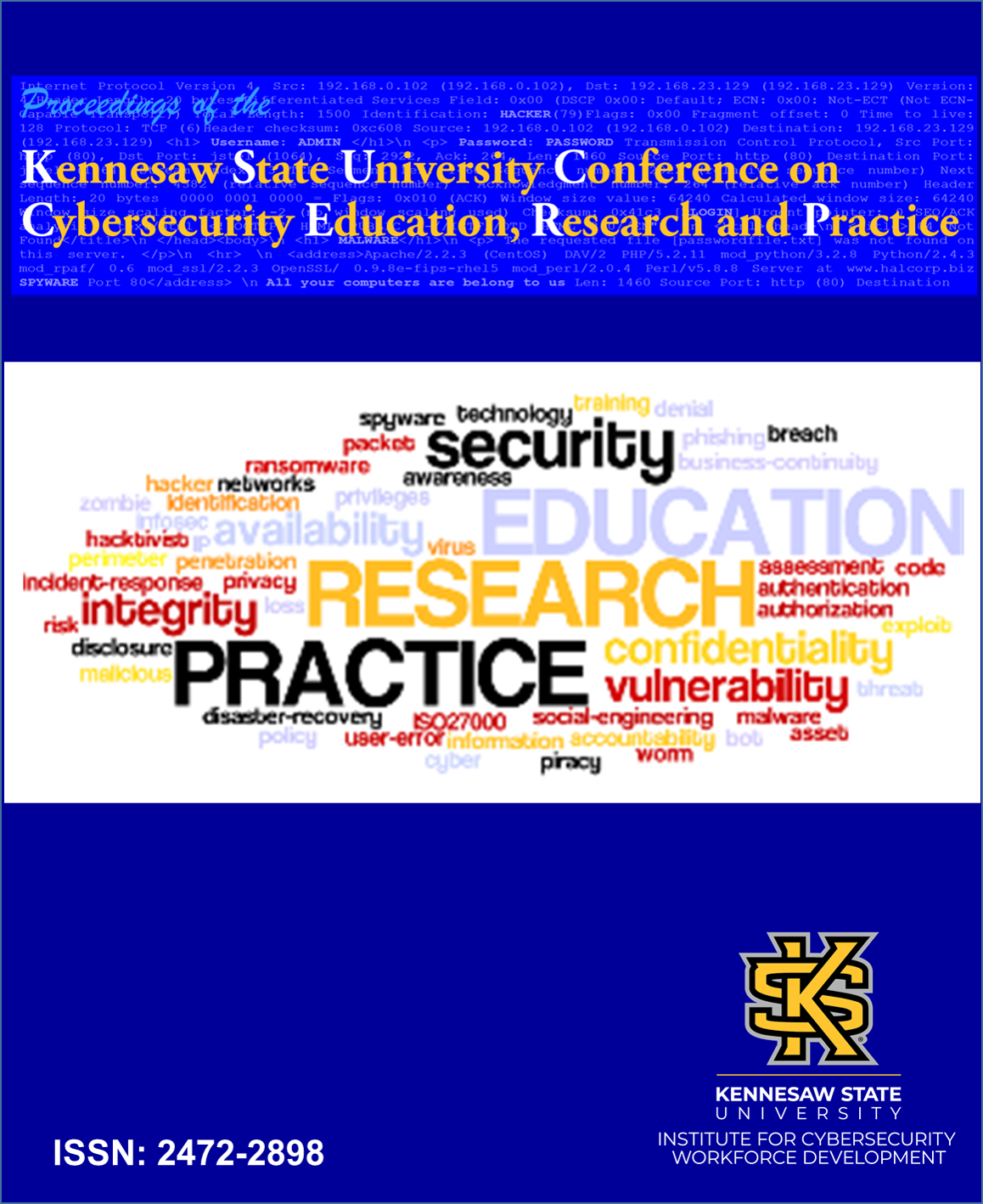Abstract
Cyber-attacks on Internet users, and in particular senior citizens, who have limited awareness of cybersecurity, have caused billions of dollars in losses annually. To mitigate the effects of cyber-attacks, several researchers have recommended that the cybersecurity awareness levels of Internet users be increased. Cybersecurity awareness training programs are most effective when they involve training that focus on making users more aware so that they can identify cyber-attacks as well as mitigate the effects of the cyber-attacks when they use the Internet. However, it is unclear about what motivates Internet users to pursue cybersecurity awareness training so that they can identify as well as mitigate the effects of the cyber-attacks when they use the Internet. This work-in-progress study will empirically investigate what motivates a specific group of Internet users, that is, senior citizens, to pursue additional cybersecurity awareness training, after initial training is conducted. Contributions from this study will add to the body of knowledge on how to motivate Internet users to pursue additional training in cybersecurity, and thus, aid in the reduction of the billions of dollars in losses accrued to Internet users as a result of cyber-attacks. Senior citizens will also benefit in that they will be better able to identify and mitigate the effects of cyber-attacks. The recommendations from this work-in-progress study will also be significant to law enforcement in reducing the number of cases relating to cybersecurity issues amongst senior citizens, and thus, free up resources to fight other sources of cyber crime.
Included in
Information Security Commons, Management Information Systems Commons, Technology and Innovation Commons
Towards a Model of Senior Citizens’ Motivation to Pursue Cybersecurity Awareness Training: Lecture-Based vs. Video-Cases Training
Cyber-attacks on Internet users, and in particular senior citizens, who have limited awareness of cybersecurity, have caused billions of dollars in losses annually. To mitigate the effects of cyber-attacks, several researchers have recommended that the cybersecurity awareness levels of Internet users be increased. Cybersecurity awareness training programs are most effective when they involve training that focus on making users more aware so that they can identify cyber-attacks as well as mitigate the effects of the cyber-attacks when they use the Internet. However, it is unclear about what motivates Internet users to pursue cybersecurity awareness training so that they can identify as well as mitigate the effects of the cyber-attacks when they use the Internet. This work-in-progress study will empirically investigate what motivates a specific group of Internet users, that is, senior citizens, to pursue additional cybersecurity awareness training, after initial training is conducted. Contributions from this study will add to the body of knowledge on how to motivate Internet users to pursue additional training in cybersecurity, and thus, aid in the reduction of the billions of dollars in losses accrued to Internet users as a result of cyber-attacks. Senior citizens will also benefit in that they will be better able to identify and mitigate the effects of cyber-attacks. The recommendations from this work-in-progress study will also be significant to law enforcement in reducing the number of cases relating to cybersecurity issues amongst senior citizens, and thus, free up resources to fight other sources of cyber crime.


